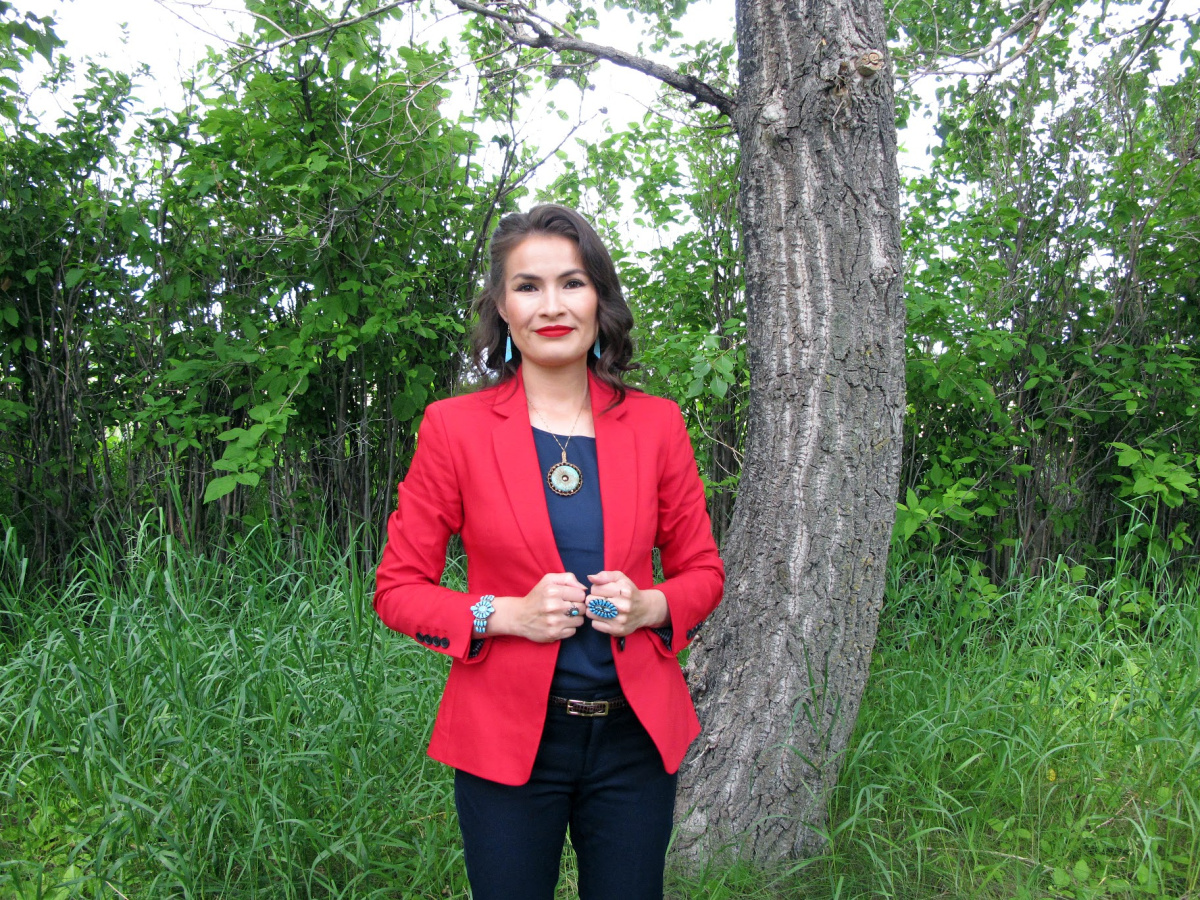Tiffany Prete, an adjunct professor in the Department of Educational Policy Studies, has a number of reasons for pursuing research on the history of residential schools in her home community, the Blood Reserve in southern Alberta. Some of those reasons are related to contributing to the body of research by Indigenous scholars. Some of those reasons are personal.
“I’m an intergenerational survivor of the Indian residential school system, my mother and grandparents and ancestors attended residential schools. Each generation was told not to talk about their experiences. My mom never talks about her experiences,” Prete said.
“I grew up knowing about residential schools but not all the specific details about what happened. I want to be able to record our history which will be told by my Elders in this project, so that when the residential school survivors pass away, we the intergenerational survivors will have something we can refer to, and so that we never forget what happened to us and ensure that it will never happen again.”
Amplifying Indigenous voices
With funding from the National Indian Brotherhood (NIB) and permission from her Chief and Council, Prete is embarking on a three-year project entitled “We are Niitsitapi (the Real People): Surviving Colonization.” She started last spring, travelling across Canada to gather primary documents related to the administration of residential schools.
“I’m looking at the different policies the government of Canada had in place for the administration of residential schools and how that trickled down into the individual schools themselves. It came down to how the principal interpreted the policy and how the schools were then run,” Prete said. “It’s been very eye-opening for me to read those documents and gain awareness of what my ancestors went through. It really puts into perspective for me how these past events are affecting Indigenous survivors and intergenerational survivors of the residential school system.”
Prete says she will provide those documents to members of the Blood Tribe and has planned talking circles early next year to allow Blood Elders to go through these documents and share these events from a Blood perspective.
“I’m taking some of the Calls to Action from the Truth and Reconciliation Commission, specifically number 78, which is to assist communities to research and produce histories of their own residential school experiences and their involvement in truth, healing and reconciliation. There have been multiple historians and researchers who have come to different First Nations people, including my people, and have written our history from a non-Indigenous point of view. There haven’t been very many books published by members of the Blood Tribe. As a member of the Blood Tribe, I am taking that call to action and implementing it on the Blood Reserve.”
Research rooted in reconciliation
Prete, who completed her bachelor of education in Elementary Education, and her master’s and PhD in Educational Policy Studies at the University of Alberta, has looked at Indigenous perspectives on high school retention and Alberta Education’s policies on indigenizing curriculum in her research, among other topics. She says the thread that unites her work is a desire to create educational opportunities and resources that improve understanding between Indigenous and non-Indigenous people.
“I’m very passionate about Canadians learning about Indigenous people and our history. One of the findings in my doctoral work is that systemic racism and the way Indigenous people get treated does affect their ability to pursue education and continue on with their lives,” Prete said.
“I want to help reverse those kinds of negative effects, and I believe that as non-Indigenous Canadians learn more truthful facts about Indigenous people, they will have a more positive view of Indigenous people.”
